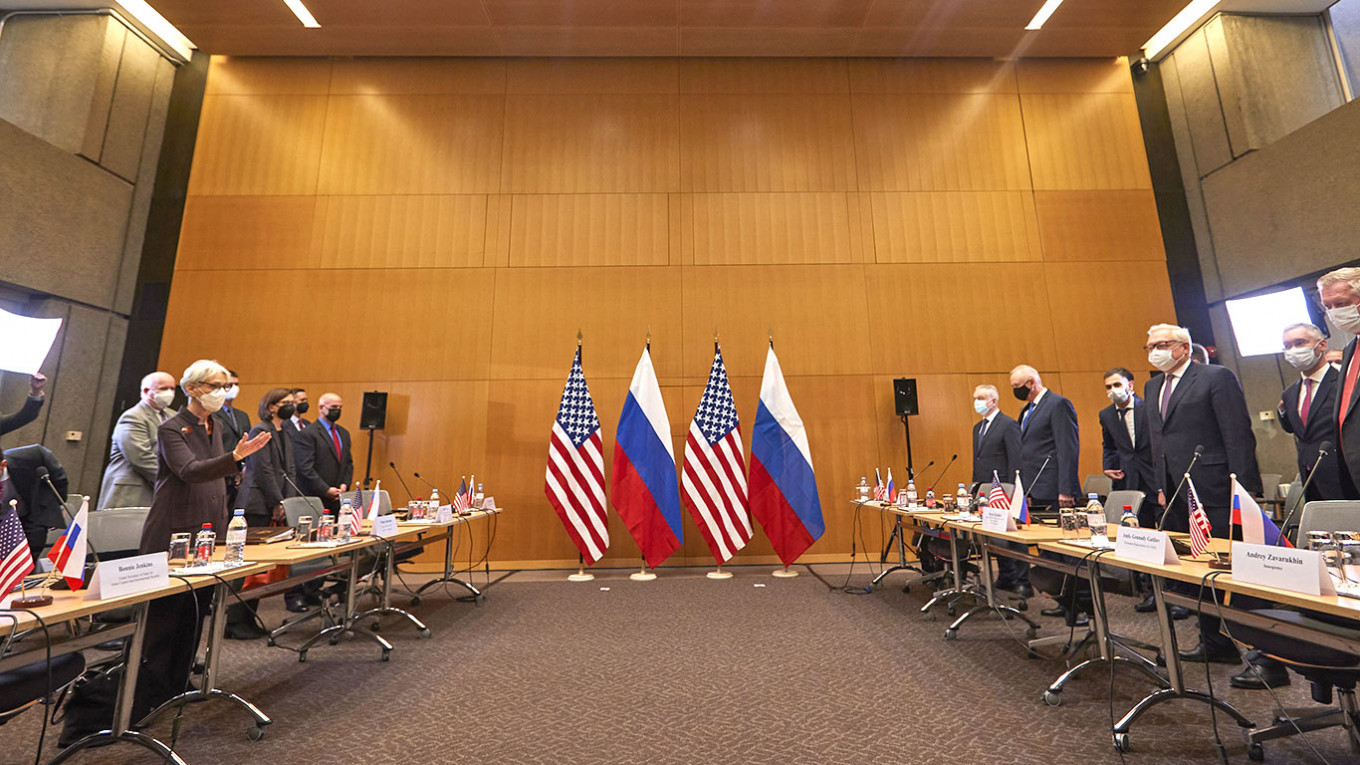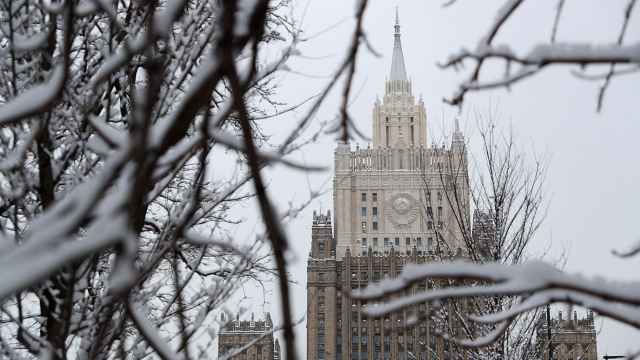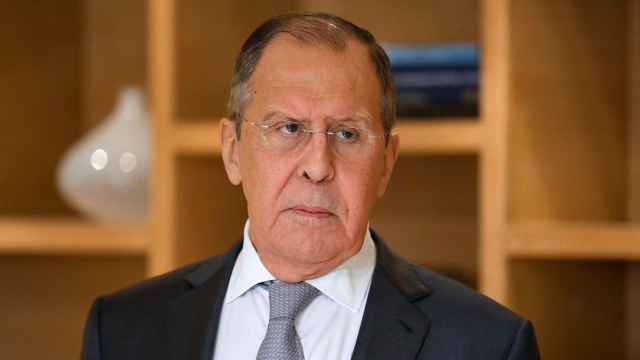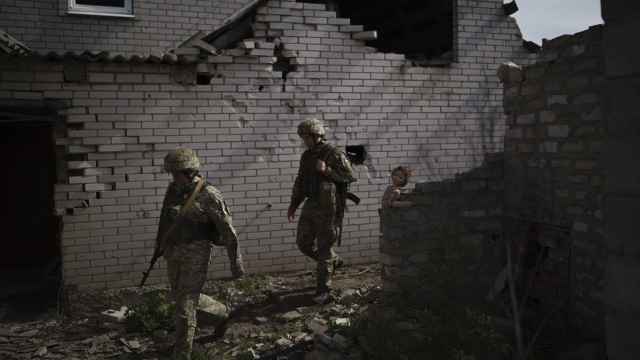Diplomatic talks this week address the crisis created by Russia’s buildup of over 100,000 troops near the Ukrainian border. What could an agreement look like, and how likely is it?
The talks have begun according to a Russian timetable and framed by Russia’s draft treaties with the United States and NATO. These proposals — in reality, sweeping demands — are unacceptable and their rejection may be intended to serve as the pretext for renewed aggression against Ukraine. Russian President Vladimir Putin himself remarked on the “sceptical smiles” of his Foreign Ministry audience when he tasked it to prepare them. It is unthinkable that, as Russia threatens a massive use of force in Europe, NATO would de facto reverse its post-1997 enlargement, or America withdraw its nuclear weapons from the continent.
Russia’s demands are, in any case, misdirection. Its immediate concern is not the 25-year history of NATO enlargement, but its own currently declining influence over Ukraine — whose Western ties are growing deeper, resistance to local pro-Russian figures like Viktor Medvedchuk sterner, and national identity stronger. Since time is not on Putin’s side, he is seeking to assert dominance over Kyiv while this is still possible, a goal hardened by his view that Ukraine is an essential part of Russia.
Russia’s real driver, then, is more status and identity than security. These are harder goals for diplomacy to address. Security can be cooperative and mutual, as the U.S.-Russian agreement to extend the New START nuclear treaty last February showed. But great power revisionism is incompatible with the principle of sovereign equality that underpins international order, and threatens the security of other states. Nonetheless, the West has decided to engage with Russia rather than reject its demands outright. What can it discuss?
Russia’s ostensible and chronic grievance — NATO enlargement — and its real and urgent concern — Ukraine — overlap on the issue of Ukraine’s potential membership of NATO. Some seasoned Western diplomats with no illusions about Russia have long expressed concern over NATO’s 2008 Bucharest summit, which declared that Georgia and Ukraine “will become members of NATO.” Russia’s occupation of Ukrainian territory in practice makes it very unlikely that NATO would extend a collective security commitment to Ukraine. Russia’s own aggression has provided the assurance that it now demands of NATO.
Does this mean, as some argue, that NATO should now assure Russia that Ukraine will never join? Critics condemn this as betraying a victim of aggression. But the argument should be addressed, not condemned. Western governments are accountable to their populations and guided by national interest. Last year they concluded that these interests were no longer compatible with long-standing commitments to Afghanistan, and swiftly abandoned the country to its fate, an outcome that probably emboldened the Kremlin’s coercion of Ukraine. Is it in the West’s interest to accommodate Russia’s designs on Ukraine?
No, this realist case is flawed. Russia’s behaviour offers no assurance that a favorable deal would satisfy it. Not only do Russia’s demands on Ukraine extend far beyond the question of NATO membership, but it has never signalled that its interests are limited to Ukraine, or even to the territory of the former Soviet Union as a whole. On the contrary, through military, cyber, informational and energy instruments, Russia is pursuing a more assertive policy towards Europe — and not only NATO members — than during much of the Cold War. Its sweeping demands for NATO’s retreat only underscore the extent of its ambitions. A settlement over Ukraine would not be a solution, but a prelude. It would make the West less, not more, secure.
Nor is constraining Ukraine’s freedom of choice likely to produce even local stability. In 2014 Russian pressure to stop former Ukrainian President Viktor Yanukovych from signing an association agreement with the European Union triggered the mass demonstrations that forced him from power. With 72% of Ukrainians now viewing Russia as a threat, its diktat will not be accepted quietly. In short, the case against Realist accommodation is not only ethical but practical: In the 21st century, spheres of influence neither satisfy large aggressors nor can easily be imposed on small victims.
Quid pro quo
But the West can usefully discuss some specific Russian concerns — not least as some would involve restrictions on actions the West has no intention of undertaking, such as deploying missiles in Ukraine that can hit Russia. But there should be no unilateral concessions — any offer requires a quid pro quo. Creative exploration of this nexus offers the best prospect of an agreement, even though Russia’s violation of past commitments, and the illegitimacy of its current position as an occupier of Ukraine, make this more difficult.
But even in the best case, the win-set is small. Diplomatic success requires Russia to scale back its demands very substantially. It will only do so if it is persuaded that renewed aggression will bring more costs than benefits. The West can improve the slim chance of agreement by managing the diplomatic process in two ways.
First, it must maintain the agreed negotiating format. Despite Russia’s clear preference for dealing only with the U.S. and major European powers, America has secured a three-track process that includes NATO and the OSCE as well as bilateral talks. It should make clear that all three tracks are equally important. This ensures the participation of all European states, including Ukraine and virtually guarantees there will be no rapid outcome. An inclusive process demonstrates Western cohesion and slows down the crisis.
Second, the West must visibly plan for the worst case to show Russia it faces a severe and united response to renewed aggression. This will include severe economic and financial sanctions, and may cause Finland and Sweden to move closer to NATO membership. This would continue a trend of Russian actions producing the opposite effects to those intended, in this case, a stronger, larger NATO.
In short, the West — not only the U.S. but Europe too — should conceive and conduct its diplomacy as part of, and not an alternative to, deterrence. This offers the main hope of averting Russian renewed aggression and the biggest clash of conventional forces in Europe since 1945.
A Message from The Moscow Times:
Dear readers,
We are facing unprecedented challenges. Russia's Prosecutor General's Office has designated The Moscow Times as an "undesirable" organization, criminalizing our work and putting our staff at risk of prosecution. This follows our earlier unjust labeling as a "foreign agent."
These actions are direct attempts to silence independent journalism in Russia. The authorities claim our work "discredits the decisions of the Russian leadership." We see things differently: we strive to provide accurate, unbiased reporting on Russia.
We, the journalists of The Moscow Times, refuse to be silenced. But to continue our work, we need your help.
Your support, no matter how small, makes a world of difference. If you can, please support us monthly starting from just $2. It's quick to set up, and every contribution makes a significant impact.
By supporting The Moscow Times, you're defending open, independent journalism in the face of repression. Thank you for standing with us.
Remind me later.








